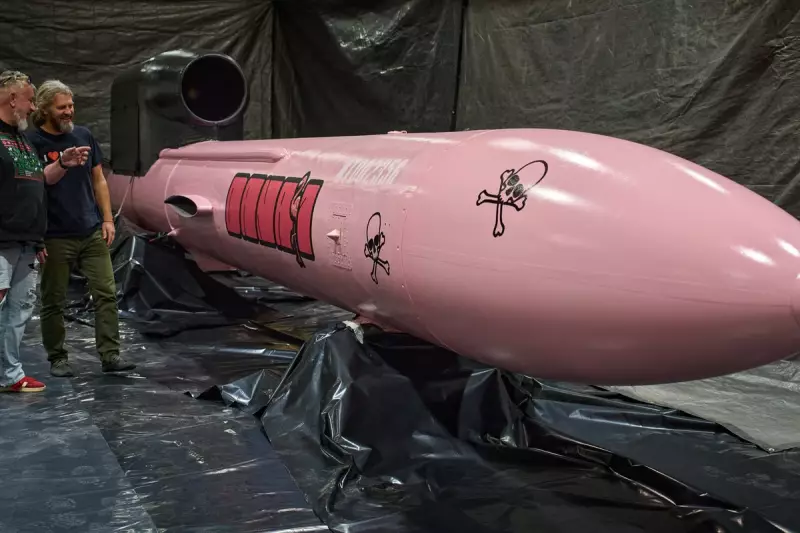
Pompeo's New Role at Ukrainian Defence Giant
Mike Pompeo, the former US Secretary of State, has taken a position on the advisory board of Fire Point, a leading Ukrainian defence company known for producing long-range drones that can strike deep inside Russian territory. This move comes as the company undergoes a significant expansion and simultaneously faces intense public scrutiny from an ongoing corruption investigation.
Expansion and International Ambitions
In a bid to bolster its global standing, Fire Point is establishing a new factory in Denmark to manufacture essential rocket propellant. The company, which reported approximately $1 billion in revenue this year, is also aggressively expanding its production of battle-tested cruise missiles, with plans to more than double its current capacity. Executives announced the creation of the advisory board and Pompeo's appointment on 12 November.
Iryna Terekh, Fire Point’s chief technology officer, stated from the factory floor, “It’s a big honour for us. We decided that since we are growing into a big international company, we have to ensure we are following the clearest and best corporate standards.” The company plans to add three more individuals to the board. Furthermore, US Special Envoy to Ukraine Keith Kellogg recently visited one of Fire Point’s factories, highlighting the company's growing international profile.
Scrutiny and the Ongoing Corruption Probe
Fire Point's rapid ascent has been shadowed by an investigation led by Ukraine’s anti-corruption watchdogs. Authorities are examining whether the company inflated component prices or drone quantities in its contracts with the Defence Ministry for its flagship FP-1 drone. The probe is also scrutinising potential links between Fire Point and Tymur Mindich, a notorious associate of President Volodymyr Zelenskyy implicated in a major corruption scandal.
In response to the investigation, Fire Point has commissioned a major international firm to conduct an independent audit of its pricing and production. “We completely support, as a company, the fact that this investigation is happening,” said Terekh. The investigation, launched a year ago, remains ongoing, and the company insists it operates under strict martial law protocols with nothing to hide.
Inside the Missile Factory
The Associated Press was granted exclusive access to a secret Ukrainian factory where Fire Point assembles its cruise missile, known as the Flamingo or FP-5. For security reasons, the exact location was not disclosed. On the factory floor, dozens of hollowed missile hulls made from carbon fibre—a material chosen for its ability to better evade Russian radars compared to aluminium—were visible.
Maksym, the head of design who gave only his first name for security, explained that the company is constantly testing and fine-tuning the missiles. “As of now we are still doing training launching, because our rockets were manufactured just six months ago. Right now, we are training, but we are training on objects in the territory of Russia and Crimea,” he said. The Flamingo missile, which costs around $500,000, has been successfully used in battle at least four times, including strikes on an FSB base in occupied Crimea and targets in the Russian city of Oryol.
Fire Point is a major beneficiary of the ‘Danish model’ of financing, where foreign governments directly fund Ukrainian defence companies. The new Danish factory is dedicated to solving production bottlenecks for solid rocket propellant. “They did a great job helping us to secure production of critical components,” Terekh remarked.
Despite the controversies, support for the company continues. A Czech organisation, Weapons to Ukraine, crowdfunded the purchase of a Flamingo missile in just two days, adorning it with a pink flamingo painting. Jan Polak, a member of the group, said, “We feel that they are fighting for us.” As Fire Point navigates its probe and expansion, its role in the conflict remains pivotal.





